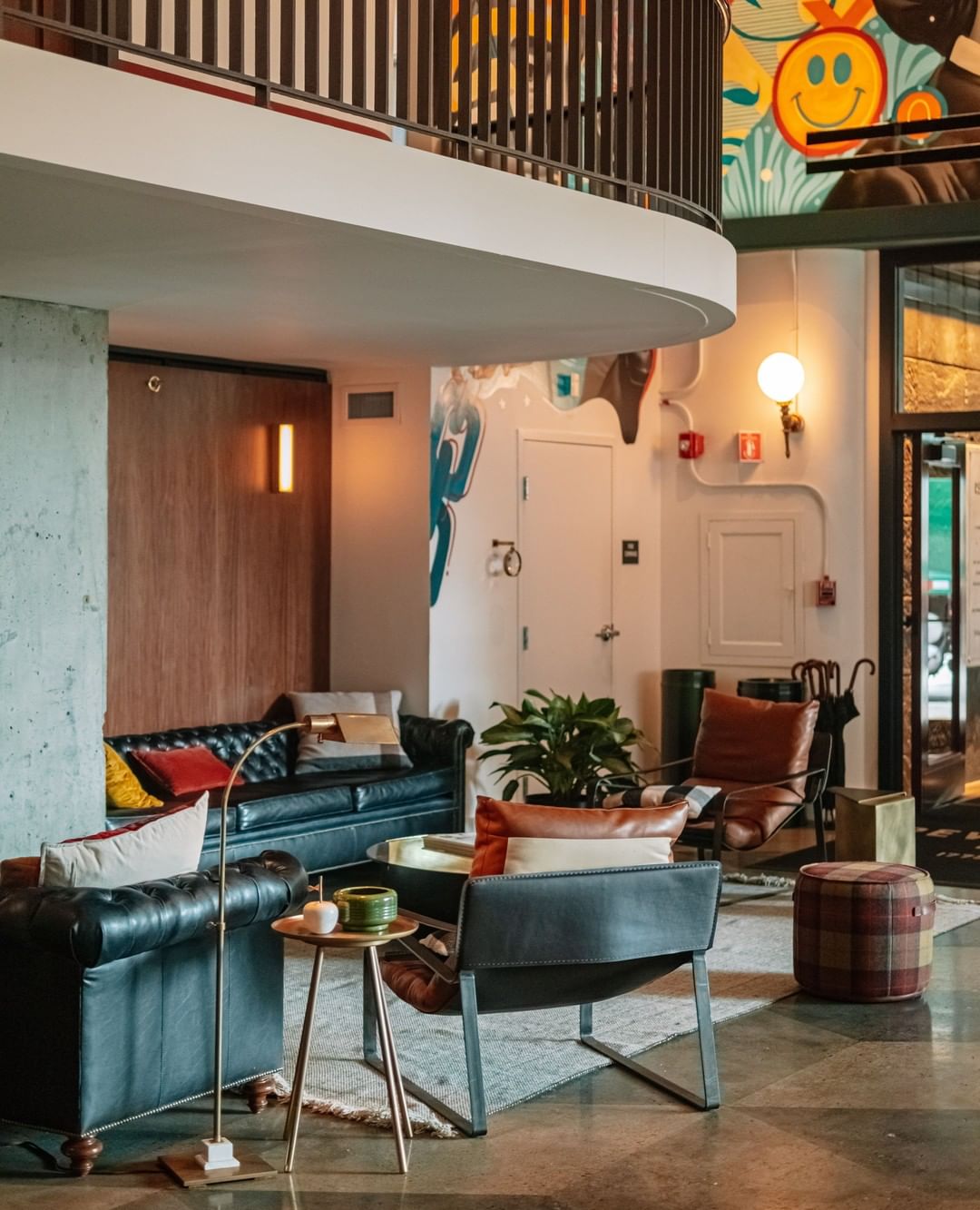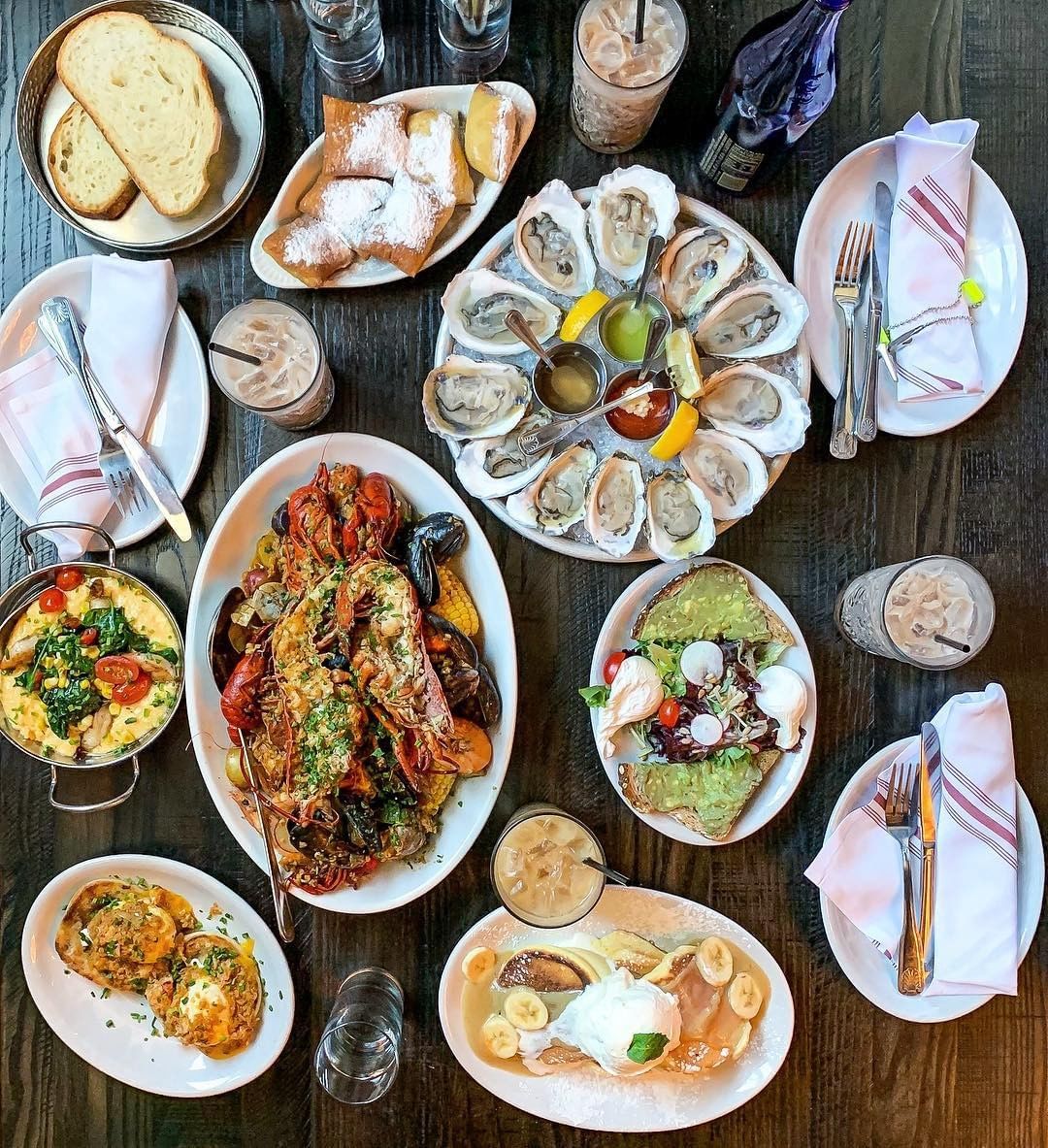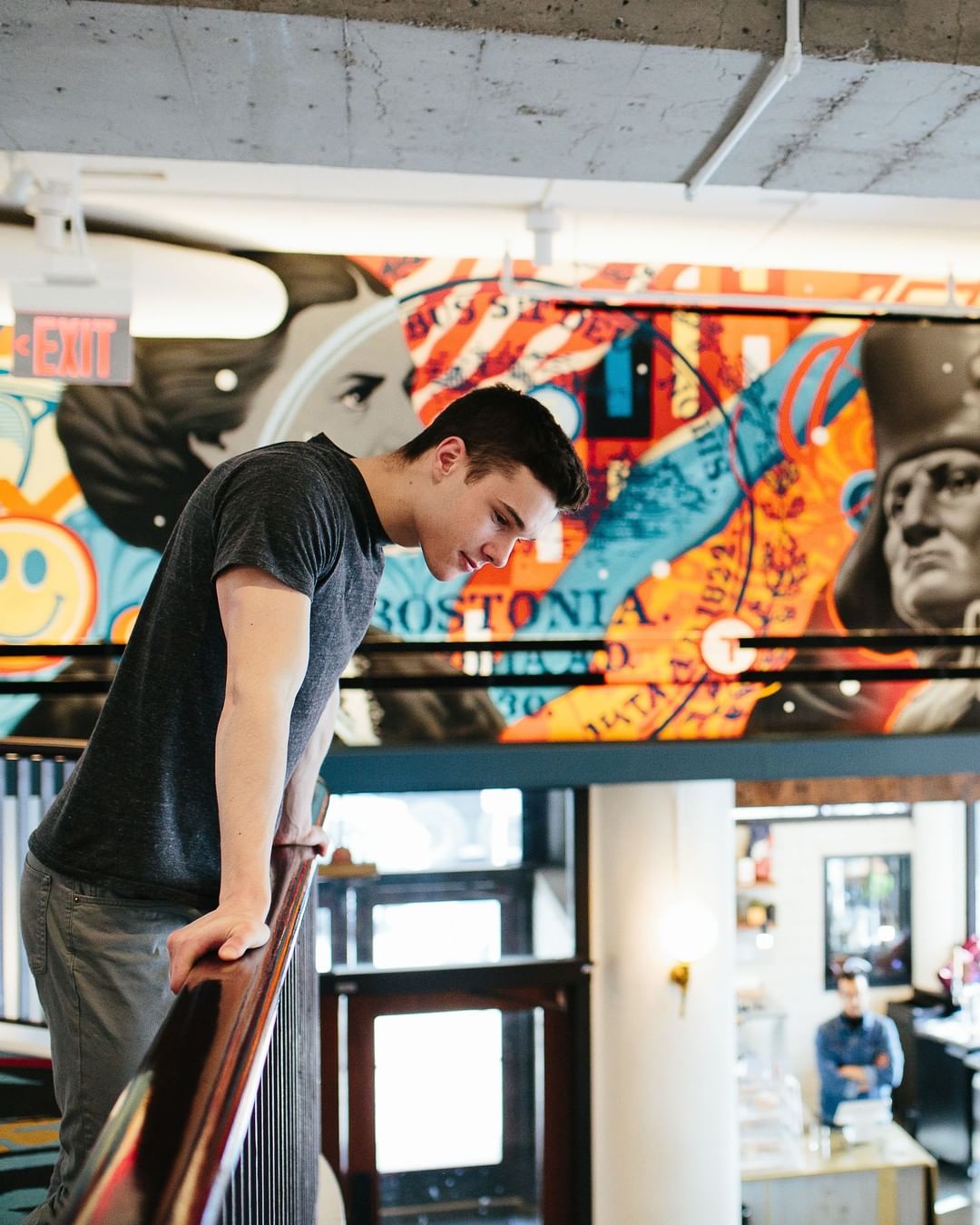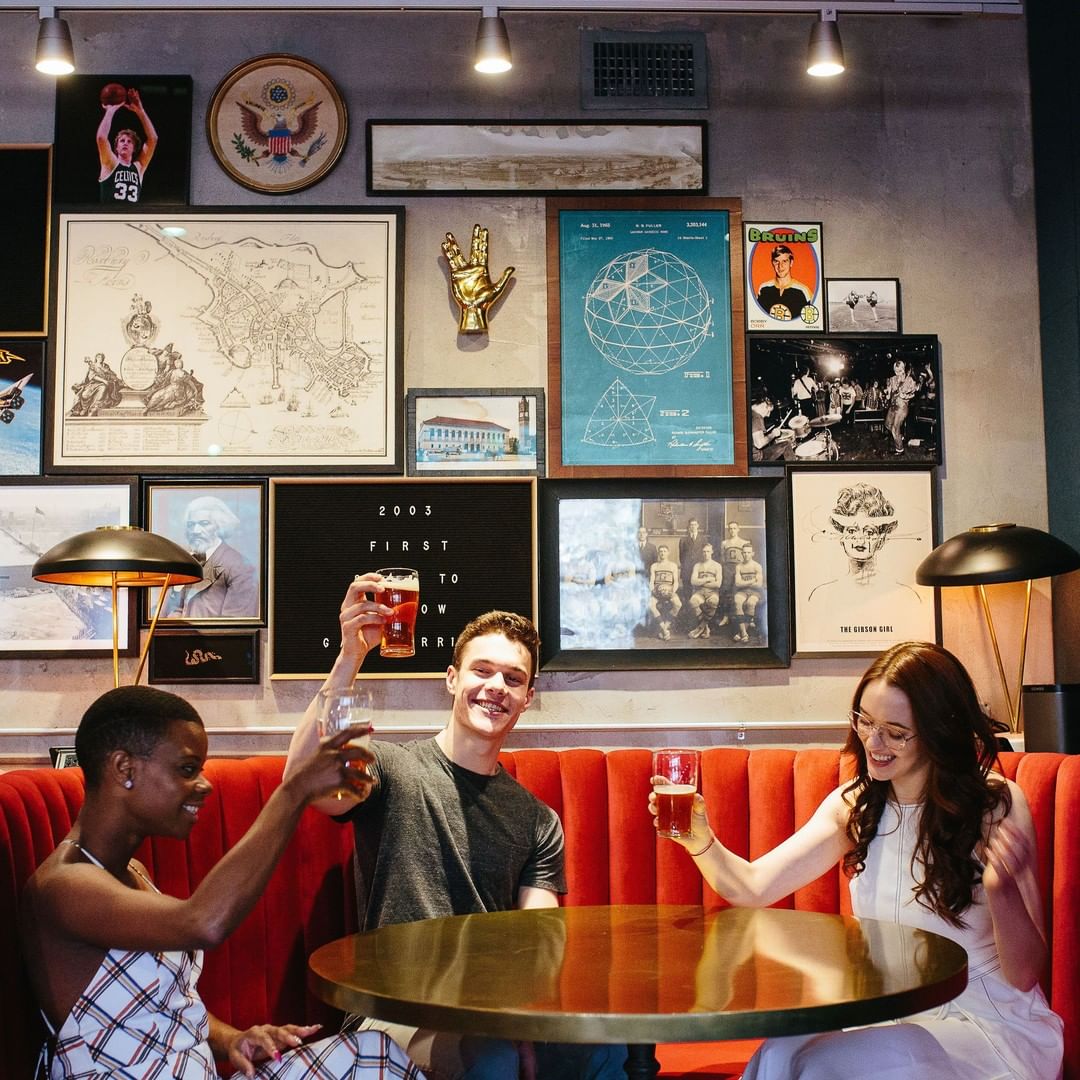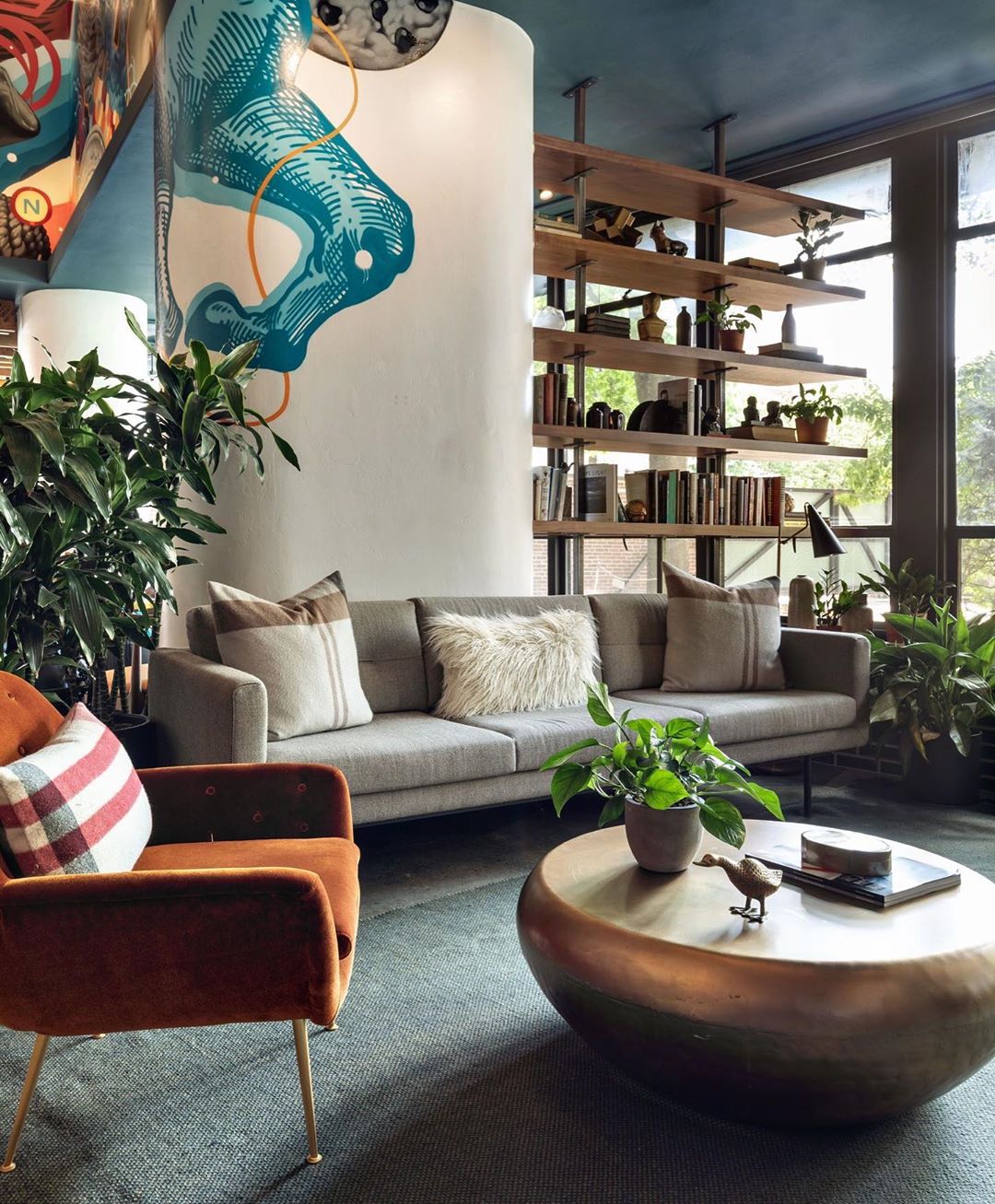Future Hospitality
podcast
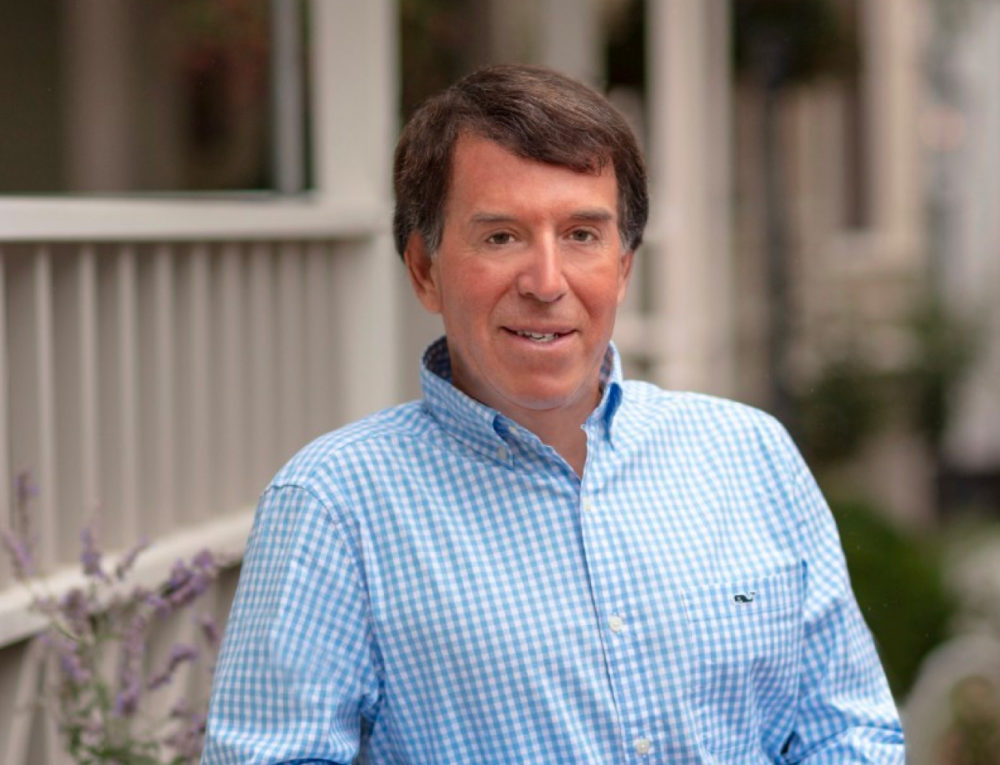
#8: Staying Nimble in the Wake of the Hotel Revolution: Bruce Percelay
July 22, 2020
Dustin Myers: Bruce, thank you so much for joining us today. We’re excited to get to speak with you.
Bruce Percelay: My pleasure.
Dustin Myers: We had initially come across to you through The Revolution Hotel, which I would like to dig into a little bit later, but congrats on being a finalist for the 16th Annual HD Project Awards. That’s awesome.
Bruce Percelay: Yeah, it’s great and we have received really a surprising number of awards for this hotel. I think not knowing their exact names, I think we’ve won five design awards and we also won the Conde Nast Traveler Award as the best hotel in Boston, which raised more than a few eyebrows of some of the other hoteliers in the city.
Dustin Myers: That’s really cool. So how did you first become interested in the real estate investment world and what was your journey into that?
Bruce Percelay: Well, it’s been a long journey. I’ve been doing this for approximately 30 years and my orientation is advertising and marketing. And the Revolution Hotel is an expression of that. I used to work for a large ad agency in Boston. I worked on major consumer products including Parker Brothers games and Keds Sneakers and A&W Root Beer and household names. It was a business that I loved, but I accidentally stumbled upon real estate by buying a small condominium on Beacon Hill years ago and sold it in a short period of time and doubled the value of it. It became a hobby while I was in the advertising business. And along the way, I had done it enough time as I just decided I would write a book about why I was achieving the results I was achieving and it was the merger of marketing and real estate. I wrote a book called Packaging Your Home for Profit. That was the precursor of staging your home. It was kind of the first book that took this concept of consumer marketing and applying it to real estate, which I termed the “ultimate consumer product”.
And from there, I just started on a very small scale and the one thing led to another and our company now is one of the largest private landlords and developers in Boston. When I say private, there’s a lot of leaks in large scale commercial developers that are national, but we are owned individually and we use our own funds. Up to this moment, life has been good. So here we are.
Jeremy Wells: That’s really interesting, just hearing how you got your start and it’s kind of neat to know that it was just kind of started out as a little side gig that you were doing and it turned into a lot more as you were learning as you went and I’d be interested to know, making that leap from real estate and like a multi and single family investment into the hospitality industry and what that was like for you and what principles carried over in that transition.
I’ve always told our team that an apartment building is a slow-motion hotel that you have to provide the same level of attention to detail and quality of service, except the turnover is once a year instead of once a day or once a week.
Bruce Percelay
Bruce Percelay: Well, I’ve always told our team that an apartment building is a slow-motion hotel that you have to provide the same level of attention to detail and quality of service, except the turnover is once a year instead of once a day or once a week. So the segue was not dramatically different for me and it played to what I see as the strength, which is understanding how to deal with the consumer and it’s something that is kind of in my veins. So it was a natural and it’s kind of a funny store. My wife and I got married on Nantucket where I spent a great deal of time. Her family is from Holland and she said, “Please go out and get 20 odd hotel rooms.” And so I came home and I said, “Well, I’ve got the rooms.” And she said, “Well, where are they?” And I said, “Well, it’s at the hotel that I just put under agreement.” And she said, “I didn’t tell you to buy the room. I just told you to get the room.” So my joke with her and I had been eyeballing this hotel. It was just what would put us over the edge. And I said, “You know, note to self, don’t tell a real estate guy to go out and get rooms. It has a whole different meaning.” And that hotel turned out to be really successful and then we did a larger project on Nantucket. And our second hotel a was named by Conde Nast Travelers the best new hotel in the world.
So we were off to a pretty good start and those hotels have performed very, very well. And then we’ve kind of expanded this line of boutique hotels and it’s a business that one would think from a distance it’s hard to make money at, but indeed if you run them a certain way and you provide high level of service, you buy them from mom-and-pop operators and you turn them into luxury experiences and the rates can double or triple. In this environment, small hotels I think are going to come back the quickest, but I’m probably getting ahead of myself, but that was the transition.
Dustin Myers: That’s awesome. Yeah. That’s a great segue into talking more about one of your recent projects, the Revolution Hotel. So this is not your average hotel. What are some of the unique aspects that you guys were trying to build into this concept?
We started with a simple premise was that the American Revolution did not end in 1776. It was just getting warmed up.
Bruce Percelay
Bruce Percelay: So unique would be probably an understatement. This is clearly a one-off product that you will not see anywhere. We started with a simple premise was that the American Revolution did not end in 1776. It was just getting warmed up. And I’ve been kind of a student of Boston and I love the city very much, but I’m also taken with the fact that there’s more innovation that has come out of this city, certainly on a per capita and per square mile basis. But I think in an absolute basis as well, there’s been more innovation than any place on the planet and the number of new products, concepts, ideas, medical devices, movements that have originated in Boston is staggering. I mean, it’s so much of our daily life incorporate ideas that have come from Boston. Simple things like the first police department, the first fire department, the first private college, and the American Red Cross, all the way to products like the invention of ether and the typewriter and the telephone and all the way up to the internet. And we wanted to showcase this. And so we use the hotel as a canvas to, in a very sophisticated way, show all these ideas and all these innovations, but weave them in a subtle way into the hotel. We have a bar top from the oldest tree in Boston that we purchased a part of and we’ve correlated all of the rings with major events, like when Facebook started at Harvard to when Martin Luther King graduated from Boston University and on and on and on. Outside our gym, we have balls attached to the wall that reflect the sports that were invented in Boston.
I have yet to find any individual, when I say, tell me what sports were invented in Boston, who knows all of them and it turns out the first football league was in Boston, on the Boston Common. The first baseball game, everyone thinks it was Abner Doubleday in New York, it was not. That came from here. Volleyball was invented in these parts as was basketball. Candlepin bowling was invented here. And it’s almost every major sport was invented in Boston. And so we took that in a graphically cool way and wove it throughout the entire hotel. We hired the top graffiti artists in America and we had him do a big mural in the building and then we wove it into the carpets in the hallway. So when you go upstairs, you’re actually walking on the mural. And there are literally hundreds and hundreds of details like this that make this more of a curated building than a design building. And it was incredibly well-received. And up till COVID-19, we were the best performing hotel in the city based on occupancy. I mean, it was exceptional and the viral messaging about the hotel was great. And we have just opened up a new restaurant and we were firing on all cylinders and then, of course, the world changed and now we’re figuring out where we go from here.
Jeremy Wells: Yeah. I think it’s really neat to hear how this property came to be. I’d be interested to know like just putting all the pieces together, all the details, all of the touchpoints and putting together that guest experience, this award-winning, like renowned experience for guests, what sort of people and partners were involved and what do you contribute that success to as far as the development of it and the concept and putting all the pieces together?
Bruce Percelay: So we brought in an army of experts and we brought in a top advertising, a guy named Adam Larson and Adam is an incredibly talented ad guy who would not be the first choice for most people because they don’t understand the advertising business, but I do. So that was my first move and he had a great vision and he was able to execute what I kind of conceived of, but at a very, very high level. We had an architectural team obviously. We sourced artists and we have something in the hotel called “The Innovation Tower” and the common areas of the building have very high ceilings. And so we have a 30-foot-high concrete column that we wrapped with white anodized, with products that were treated white anodized paint that are all the innovations. So you see this big column, but attached to it is an optical mouse and the gas tank of an Indian motorcycle and typewriters and telephones and computers. And it’s really quite stunning. And you look at this and you go, “What is this?” And then when you got closer and we have magnifying glasses on all the displays that if you get close, you can read what this thing is all about. So there’s nothing cookie-cutter about this hotel. There is nothing you’re going to buy at Home Depot that went into this hotel. Everything is crafted. Everything is custom and it works.
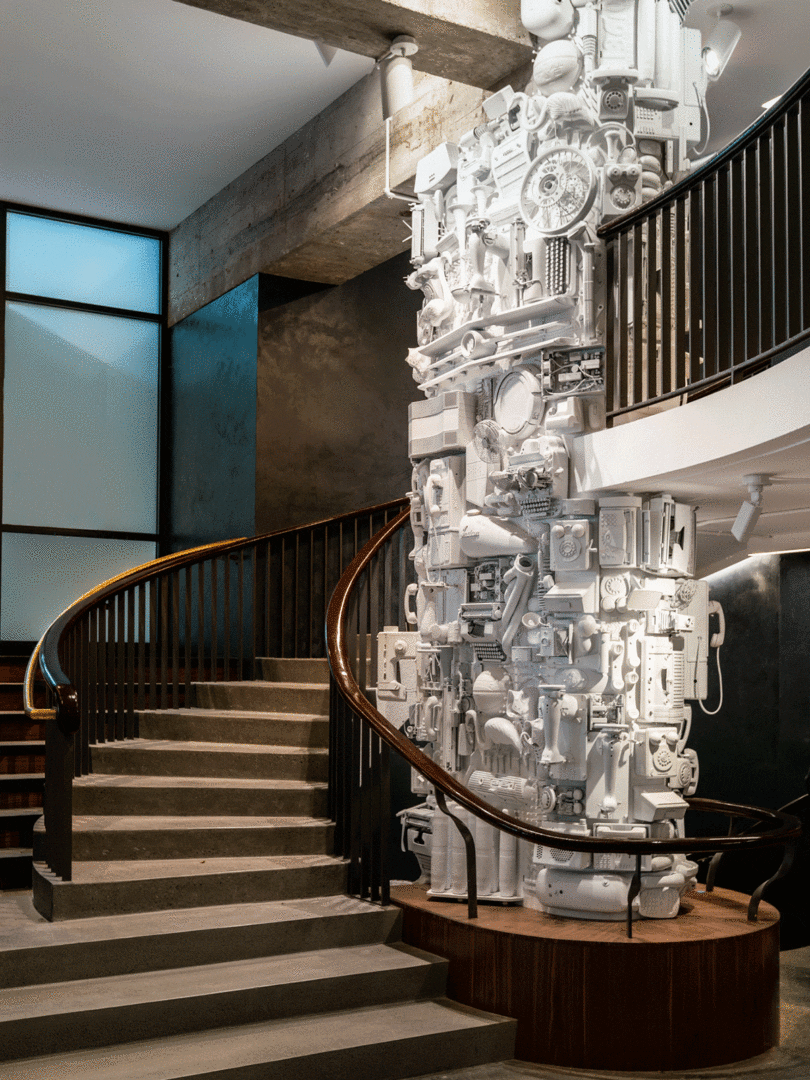
Jeremy Wells: Yeah. Along the way as you were creating this concept, was there any like unique challenges that you faced bringing it all together and launching it?
Bruce Percelay: The big challenge was the building. It was built in the ’50s. By the way, as the first YWCA in America, the building itself was a first. The construction of the building was so robust that it was very expensive to do penetrations on the floors, and it was built like a bomb shelter. So that was problematic. The name, the revolution, believe it or not, was controlled by a company that has the name revolution in their business line. And so it turns out I knew one of the principals of this company and he was incredibly magnanimous and let us use the name for 50 years. So that was a stumbling block right out of the gate because that name was key to what we were doing. We got that. So we were off and running.
Dustin Myers: Yeah, I’m sure it’s something that the community takes a lot of pride in, just being able to see their story put together for visitors to see and understand. That must be awesome.
Bruce Percelay: Yeah. No, I think it’s absolutely an asset to the neighborhood and people just walk in the common area and their jaws drop. I mean, it’s quite imposing when you walk in to see the mural and you see the Innovation Tower and you see all of these touches and we saved the old fashion mailboxes from the hotel. Well, the first post office in America was in Boston. And wherever you turn, if you take the time, there’s just discovery everywhere. And we do have a great restaurant and that’s a plus for the neighborhood. So it’s kind of a landmark.
Wherever you turn, if you take the time, there’s just discovery everywhere.
Dustin Myers: Absolutely. Since your time in the industry, how have you seen the real estate industry evolve and change over the years and how do you see it shaping up for the future?
Bruce Percelay: Well, the industry as a whole, when I first started institutions were not in the multifamily business. It was not an institutional kind of product type. It was office and industrial and all that. And when the institutional world kind of discovered and the investment world discovered multifamily, cap rates dropped significantly. It used to be everything sold at a 10 cap, and then it basically became a 5 cap. So the value of everything doubled. The standards are much higher in terms of product type on the new projects we build. We work very, very hard to be the most innovative to create the best amenities. Everyone does this now. The term is “amenity wars”, you try to outdo each other. But I think the standard of apartment living has gone up just dramatically. And that’s probably the biggest change that I have seen and the valuations.
Unfortunately, the returns are a lot lower too because costs are higher, but it’s been a very, very strong performing business for a long time and it has a much lower risk factor, a much lower beta than hotels and we’re seeing it now, If the apartment business gets a cold, hotels catch pneumonia.
Jeremy Wells: Yeah. And you mentioned the term or you mentioned smaller properties earlier and you could see that being kind of the future, in a way, of the hospitality and hotel industry. What does that look like to you, I guess, and why do you think smaller properties are kind of the future?
Bruce Percelay: Yeah. I’m referring specifically to Corona. This too shall pass. However, there are certain behaviors that could last for a long time, one is clearly in the office market, people have discovered that “Wait a minute, working at home makes a whole lot of sense.” And you say, “A couple of hours a day commuting and this that and the other,” and it turns out people are more productive and that will affect office use for a long, long time. Maybe forever. It won’t kill the office, but it’s going to reduce the requirements. Hotels, my favorite line is, “Size matters. The smaller, the better.” I think for a while people are going to be much more comfortable in small hotels than big hotels. The ultimate big hotel is the convention hotel.
Well, number one, conventions will be reduced, and number two is convention hotels like a cruise ship and you’re in elevators with a lot of other people and you sometimes have HVAC systems that are common and one of the nice things about The Revolution is each room has its own HVAC and operable windows. So we have a very healthy level of air quality and little boutique hotels are probably the first to come back because a hotel that has 30 rooms and outdoor space is much more comfortable for visitors. So I think the small drive-thru hotels will recover the first and the big fly-to hotels will recover last.
Jeremy Wells: How do you and your team stay kind of ahead of the curve on the thinking and the trends? What are some ways that you guys do that as a team?
Those people who take the set-it-and-forget-it approach with real estate, sooner or later will get hurt
Bruce Percelay
Bruce Percelay: Well, we are thinking constantly and we’re always, always thinking. Some people for either lack of energy or lack of focus or lack of belief in the notion that you always have to be ahead of the curve, those people who take the set-it-and-forget-it approach with real estate, sooner or later will get hurt because they’re going to be behind the curve and whether that’s relating to pricing or marketing strategies or physical aspects of the building, this isn’t a dynamic business. A lot of people think it’s an old fashioned stodgy business that you build an apartment building and that’s it. But we are obsessed with watching the news and watching political developments and COVID-19, we have a building that’s under construction, our entire furniture plan we threw out the window and canceled orders and are now putting in a whole different furniture plan that reflects people’s desire, at least at the moment, for physical distance and privacy. The big communal couches and the big communal spaces that would encourage people to be together are now going to encourage people to be apart.
So yeah, you have got to be nimble and it takes a lot of effort. As a private company, we can make decisions very, very quickly. If you have to go to a committee and a board and then this and then that, you don’t have time to react. You’ve got to be nimble. I mean, it’s a very good question you asked because I, at night, sit there and we’re constantly thinking about what’s around the corner and it actually has served us quite well because when times get tough, we’re usually in a pretty good position to weather it.
Dustin Myers: What projects or endeavors do you have coming up personally that you’re excited about?
Bruce Percelay: So we have a new apartment building in Boston, in Allston, which is a part of Boston, called The Art House. The Allston section of Boston was named after an artist, most people don’t know this name, Washington Allston. And everything about the interior and the exterior speak to art in a very sophisticated way and we had just completed a hotel called the Radius, which was a big success and quite stunning, but this thing takes it to another level. And I can’t wait to see how this comes out.
We have a robotic painting product that attaches to a wall and it goes up and down the wall and it makes new pictures all day long. And you can program it. And I don’t think anyone has seen this thing. It’s brand new. Wherever you go, there’s something cool that is artistic and we spent a lot of extra money on the shape of the exterior. The building kind of as these very sharp angles and this is not a shoebox. We spent a lot of money as we do in a lot of our buildings to make them different. So this one’s going to be great and it’ll be done probably, I don’t know, in about 11 months or so. So that’s our latest, and we’re doing a huge project up in Portsmouth, New Hampshire. That’s also going to kind of reflect some interesting aspects of that account and it’s a 12-acre site of a mixed-use project and Portsmouth has a very kind of high standard of living. People really enjoy living there. And now that COVID has hit, a lot of people are questioning urban living. Do they really need to live downtown somewhere versus a small town like Portsmouth that just happens to have great restaurants and a beautiful seaport and a strong job based around it? So our timing on that one may be lucky.
Dustin Myers: Well, I’m excited hearing you describe those. I know we’re looking forward to continuing to watch what you guys are doing and just see how the world shakes out with all of this and what the future has for us. But thank you so much for joining us. Some really cool insights and we look forward to seeing what you do next.
Bruce Percelay: Great. Thank you again. And I enjoyed our chat.
Jeremy Wells: Thanks, Bruce.
Dustin Myers: All right. Stay safe.
Bruce Percelay: Thank you. Bye-bye.
[End]
